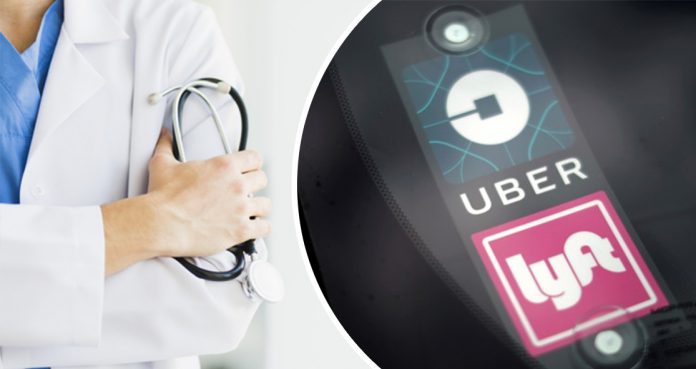The United States has one of the inefficient healthcare systems. It spends about 17 percent of its GDP on healthcare, but still, experience poor health outcomes than other wealthy nations.
Most of the spending is lost due to no-shows. Patients who fail to check with their doctors cost the U.S. healthcare system approximately $150 billion annually, partially because more than 3 million people have no access to transportation on time.
Transport network companies are coming up with solutions to help close that gap while relying on getting government funds to take patients to their scheduled medical appointments.
Two rideshare companies, Uber and Lyft, have collaborated with insurance companies, hospitals, and clinics with a ray of hope that they can offer more efficient, non-emergency transport for those who are trying to get to their appointments. Plus, the transport network companies say they can save the U.S. healthcare system a lot of money in doing so.
Megan Callahan, Lyft’s Vice President of health, said, “For the past three years, we’ve been focused on non-emergency transport. In that time, we’ve seen endless examples of the positive impact transportation can have…not just on improving overall health, but also by saving costs and increasing operational efficiencies for our healthcare partners.”
Earlier this month, Lyft had announced that it has expanded partnership with Medicare Advantage plans from insurance companies Humana and BlueCross BlueShield.
Medicare Advantage is a government program for people who are above 65. Patients enrolled in these insurance plans can access rides to their appointments through Lyft and the rides are billed to their health insurance plan.
Last April, the Centers for Medicare and Medicaid Services announced that it would cover non-emergency transport.
Dan Trigub, the head of business development for Uber Health, said, “We think every rideshare company should provide a way for the healthcare industry to utilize their product. It’s good for Uber, it’s good for the industry.”
Established in February 2018, Uber Health has 1,000 customers so far. Like Lyft, Uber Health is a private product that can be incorporated in the hospital’s electronic medical record system. Trigub said patients do not have to use a smartphone to book a cab; they can call cars directly.
Although this is a significant move from Uber and Lyft, it is unclear what kind of impact they are having on the overall U.S. healthcare system.
It has been found that Lyft rides have been more punctual than non-Lyft providers have. In the first year and a half, there was a 39 percent reduction in the cost of transportation. Likewise, Uber Health saved Boston Medical Center nearly $500,000 by replacing shuttles between clinics and campuses. In fact, patients said they were pretty satisfied with the Uber Health services.
However, according to researchers of the University of Pennsylvania, some patients did not go to more appointments due to rideshare services, suggesting that a more targeted approach is required instead of simply offering them rides.
With so much ruckus of our national health policies, it remains to be uncertain if the Trump administration will slash health budgets, which includes funding for Medicare and Medicaid. We really do not yet know if the privacy concerns, which have plagued rideshare companies will seep into the U.S. healthcare industry.
Nevertheless, it is clear that Uber and Lyft will male more inroads into the U.S. healthcare system as time passes. Callahan said, “I think we are just seeing the beginning of the possibilities here.” The Lyft’s vice president explained that the company is planning to expand beyond healthcare and wellness, offering rides to gyms and grocery stores.
For people who have no access to private or public transport, rideshare proves as important as healthcare itself. Trigub said, “When you look at our aging population, the social isolation, the lack of independence that seniors have.” “We feel Uber gives them that independence.”





















